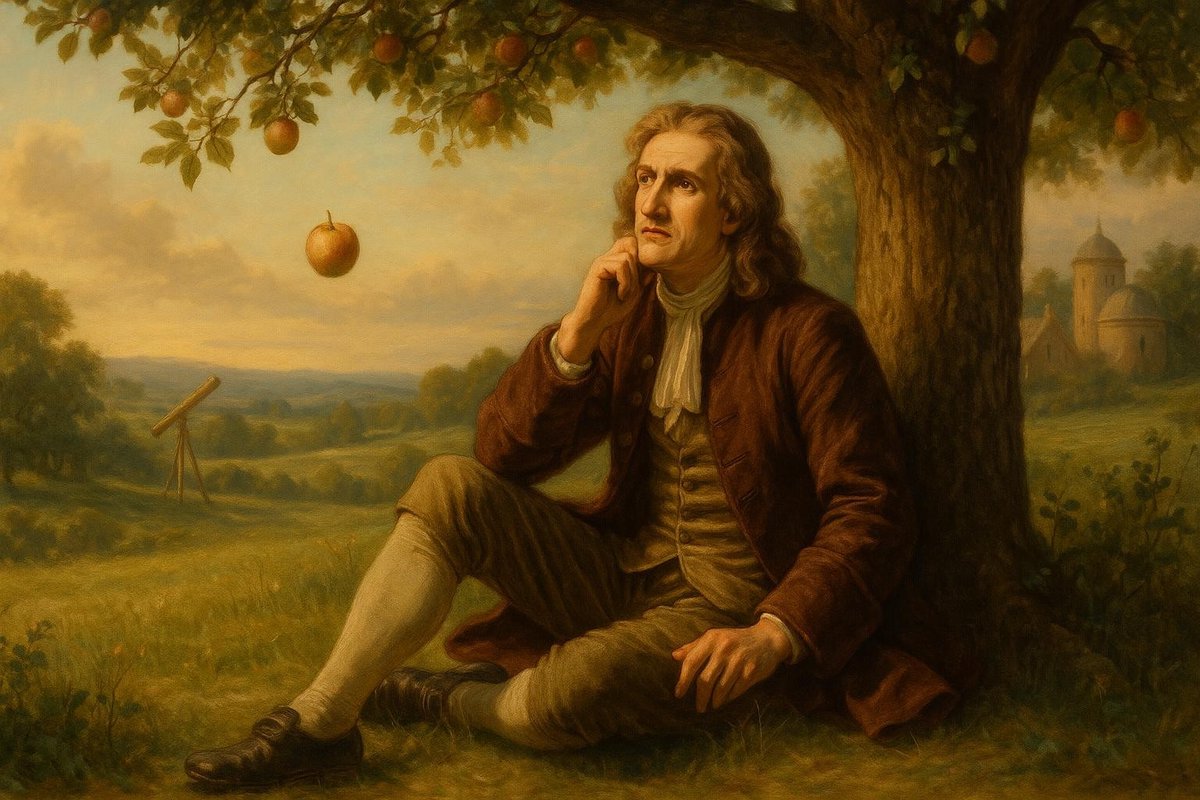
Have you ever wondered why an apple falls straight to the ground or how the moon manages to stay in the sky? These questions, so simple yet profound, point toward one of the most remarkable scientific discoveries in history: gravity. This everyday force, so familiar and yet so mysterious, was elucidated thanks to the curiosity and intellect of a man named Isaac Newton. His insights not only explained why objects fall but also opened a window to the vast workings of the cosmos.
The Problem Context: A World Without Gravity
Before Newton, the movement of objects, both on Earth and in the heavens, was a mystery wrapped in guesses and philosophical ponderings. Many people believed in the theories put forth by Aristotle, who suggested that heavier objects fall faster than lighter ones.
- Interestingly, Aristotle’s views held sway for centuries despite evidence to the contrary.
- Galileo Galilei challenged these ideas by showing that all objects fall at the same rate regardless of their mass.
- Yet, even Galileo couldn’t fully explain why objects moved as they did.
As time went on, the need for a unified theory that could explain both the terrestrial and celestial movements became increasingly apparent. In the 17th century, Europe was a hotbed of scientific inquiry, laying the groundwork for new ideas and breakthroughs.
The Theoretical Breakthrough: Newton’s Insights
Enter Isaac Newton, a man whose curiosity about the natural world knew no bounds. Born in 1643 in England, Newton was not just a scientist but a thinker of unmatched depth. His intellectual style was shaped by a relentless dedication to uncovering the truths of nature.
- No wonder he famously pondered the falling apple, leading him to question the forces at play.
- Newton’s ability to see connections others missed led to his formulation of the law of universal gravitation.
- He postulated that every mass attracts every other mass through a force proportional to their masses and inversely proportional to the square of the distance between them.
This elegant equation not only explained the falling apple but also the orbits of planets. Newton’s insights were captured in his seminal work, ‘Principia Mathematica’, published in 1687.
Supporting Evidence: The Proof is in the Predictions
Newton’s laws didn’t just explain the phenomena; they predicted them. This was a significant shift in scientific thought. How did Newton prove his theory? Through a beautiful combination of mathematics and observation.
- One compelling piece of evidence was the accurate prediction of planetary motion around the sun.
- Newton’s laws were able to explain why the moon didn’t fly off into space but instead orbited the Earth.
- His work provided a framework that future scientists, like Albert Einstein, would build upon.
Newton’s genius lay in his ability to unite seemingly disparate phenomena under a single theory. This unity was revolutionary, providing a comprehensive understanding of the natural world.
Modern Relevance: Gravity’s Impact on Today
Why does Newton’s discovery still matter today? In our modern world, the principles of gravity are everywhere. From the engineering of bridges to the launching of satellites, Newton’s laws continue to be foundational.
- Many of the conveniences we enjoy, such as GPS technology, rely on understanding gravitational forces.
- Space exploration, a testament to human ingenuity, is grounded in Newtonian physics.
- Gravity keeps our feet on the ground and our dreams reaching for the stars.
The discovery of gravity didn’t just change science; it reshaped our worldview. Newton showed us that the universe is an ordered, predictable place, governed by laws that can be understood and harnessed.
In conclusion, Newton’s discovery of gravity was more than a scientific breakthrough — it was a pivotal moment in human history that fundamentally altered our understanding of the universe. His relentless curiosity and capacity for seeing the world differently remain an inspiration for us all, reminding us to question, explore, and wonder.
Fuel Someone Else’s Curiosity
If this journey into the story of gravity has sparked your interest, why not share it with a friend or classmate? Discussing these ideas can open doors to new understandings and keep the flame of curiosity burning bright. Let’s inspire each other to keep asking the big questions, just like Newton did.

Leave a Reply